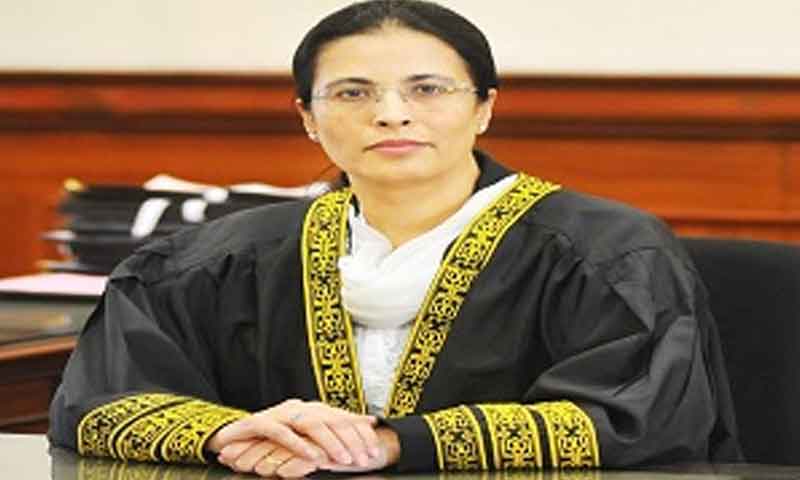
During the hearing regarding the reserved seats for the Sunni Unity Council (SIC), the apex court judge called on the political parties claiming additional seats to justify their claim, and respect the positions of other parties.
Also read: SC full court takes up SIC’s reserved seats case
Presided over by Chief Justice Qazi Faez Isa, a 13-member full court heard the case. The full court consists of 13 judges including Justice Mansoor Ali Shah, Justice Munib Akhtar, Justice Yahya Afridi, Justice Aminuddin Khan, Justice Jamal Khan Mandokhail, Justice Muhammad Ali Mazhar, Justice Ayesha Malik, Justice Athar Minallah, Justice Hasan Azhar Rizvi, Justice Shahid Waheed, Justice Irfan Saadat Khan, and Justice Naeem Akhtar Afghan.
During Tuesday’s hearing, representing the Sunni Ittehad Council (SIC), Faisal Siddiqui, said that Sahibzada Hamid Raza had contested the election independently but he had mentioned his affiliation with the SIC in the nomination papers.
Makhdoom Ali Khan said that the Election Commission of Pakistan (ECP) had refused to allocate reserved seats to the SIC and the decision was upheld by the Peshawar High Court's (PHC).
The chief justice expressed surprise that Salman Akram Raja and Faisal Siddiqui did not discuss the PHC's decision, focusing only on the Election Commission's ruling.
Also read: ECP suspends ruling coalition’s lawmakers elected on SIC’s reserved seats
Justice Athar Minallah remarked that Hamid Raza had mentioned his commitment to the SIC in his nomination papers while Justice Jamal Mandukhel said that party affiliation required a party ticket.
Makhdoom Ali Khan noted that Hamid Raza had submitted a letter in which he said that he did not contest the election under any party banner.
Justice Minallah was of the view that the election symbol does not necessarily indicate party participation.
Justice Ayesha Malik questioned why Hamid Raza was prevented from contesting on a party ticket, suggesting the case could take a different turn if confirmed by the ECP.
Meanwhile, the CJP stressed that judges should only consider points raised in appeals, not create or undermine any party's case.
Makhdoom Ali Khan informed the court that the SIC did not field any candidates or provide a specific seat list.
Justice Minallah stated that if proven, Hamid Raza was a candidate for the Sunni Unity Council, it would alter the case.
Justice Minallah discussed the current political landscape and its implications.
Justice Muneeb Akhtar questioned how the ECP could declare a candidate independent if they had shown party affiliation and couldn’t withdraw it.
The CJP remarked that neither is the PTI a party in this case, nor are there any elected representatives involved. He said that the arguments presented before the court will remain unchanged.
He asserted that the merits of ECP’s decisions, whether good or bad, should not be judged if they have not been legally challenged in the plea.
CJP Isa clarified that the court's concern lies solely with the contents of the case file, not external perceptions or pressures.
Justice Ayesha Malik reiterated that seats should only be allocated based on proportional representation and cannot be given outside of this principle. She called on those claiming additional seats to clarify their stance and respect the positions of other parties.
Justice Athar Minallah stressed that currently, there is a failure to uphold the constitution. “Rather than confronting the reality, we are avoiding it,” he said, observing that many are attempting to give the impression that we are only discussing historical matters.




